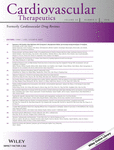A double-blind randomized clinical trial comparing different doses of magnesium in cardioplegic solution for prevention of atrial fibrillation after coronary artery bypass graft surgery
Summary
Aims
This study aims to compare different doses of magnesium administered via cardioplegic solutions to prevent atrial fibrillation (AF) after coronary artery bypass graft (CABG) surgery.
Methods
A total of 120 patients who were scheduled for elective CABG surgery using cardiopulmonary bypass were enrolled in this double-blind, randomized clinical trial. After fulfilling the inclusion criteria, they were randomly allocated into three groups (A, B, and C). Patients in groups A, B, and C received 60, 80, and 100 mg/kg of magnesium sulfate via cardioplegic solutions during aortic cross-clamp, respectively. Postoperative AF was assessed by continuous ECG monitoring during 3 days after surgery. Also serum magnesium, potassium, and calcium levels were assessed during the study period.
Results
The findings revealed significant differences in four point measurements of serum magnesium level after surgery (P<.001). In particular, it was observed that 10 (26.3%) patients in group A, 4 (10%) patients in group B, and 2 (5.4%) patients in group C had AF after surgery. This indicates patients receiving magnesium at doses of 80 and 100 mg/kg had lower rates of AF occurrence than those receiving 60 mg/kg dose of magnesium (P=.02). Additionally, no significant difference was found in serum calcium and potassium concentration between the three groups throughout the study period.
Conclusion
Magnesium administration via the cardioplegic solution during aortic cross-clamping at doses of 80 and 100 mg/kg can reduce the risk of AF occurrence after CABG compared to the dose of 60 mg/kg. Considering the lower rate of AF incidence and shorter length of ICU stay in patients receiving 100 mg/kg of magnesium, it seems reasonable to administer 100 mg/kg magnesium during aortic cross-clamp to prevent postoperative AF.




